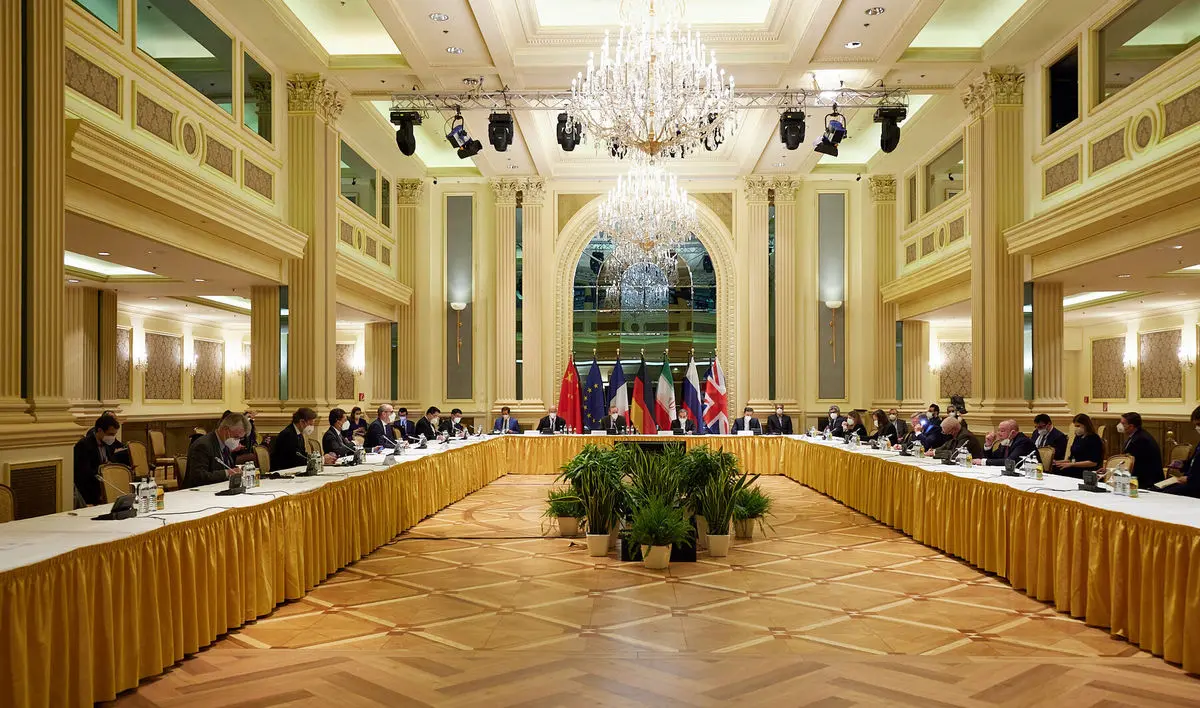Iran articulates nuclear positions ahead of Vienna talks

While the new Iranian president, Ayatollah Seyed Ebrahim Raisi, is busy forming his administration, Western countries impatiently ask the new Iranian government to set a date for the resumption of the Vienna nuclear talks.
But the mere resumption of talks is unlikely to break the deadlock over the talks as long as the United States continues to ignore the fact that the 2015 Iran nuclear deal, officially known as the Joint Comprehensive Plan of Action (JCPOA), cannot be expanded, at the least from the Iranian perspective.
According to Irannews daily website, The United States and its European allies, namely France, Germany, and the UK (E3), have been trying out many diplomatic tactics and stunts to force Iran into returning to Vienna ever since the last round of talks, held in June, end up in a stalemate. After six rounds of talks, nuclear negotiators from Iran and the remaining parties to the JCPOA and the U.S. reached a critical juncture where they needed to make tough decisions.
The U.S. and France called on Iran to make “tough decisions” to break the deadlock over the deal. Iran responded by saying that if a party is to make tough decisions, it is the United States and its European allies, not Iran, because Iran had already made tough decisions after the U.S. unilateral decision to withdraw from the JCPOA in May 2018.
In the meantime, Iran underwent a transition of power, which caused a hiatus in Iran’s nuclear deliberations. But this didn’t prevent the U.S. from brandishing a tightening of the noose on Iran’s oil sales to China in a bid to force Iran to return to Vienna.
The U.S. threat of further enforcing oil sanctions against Iran failed to impinge on the country’s nuclear calculations as the U.S. already has oil sanctions in place.
Iran said it would decide on the Vienna talks after completing the transitions period. Meanwhile, Washington and its European allies voiced concerns that the new government of Iran either won’t return to the Vienna talks or it will return but rejects what was achieved in the previous rounds.
To alleviate these concerns, the Europeans called on Iran to return to Vienna to conclude the talks. “We urge Iran to return to the negotiations in Vienna as soon as possible with a view to bringing them to a swift, successful conclusion. We have repeatedly stressed that time is on no-one’s side,” a recent joint statement by the E3 said.
In response, Iran hinted that a return to Vienna is in the cards, but it did not set any date for that. In addition, Iran declared what Washington and its European allies had feared the most: no change in Iran’s position toward the outcome of the Vienna talks.
During the latest round of talks, Iran demanded that the U.S. verifiably lift all the sanctions imposed, re-imposed, or relabeled after former U.S. President Donald Trump’s withdrawal from the JCPOA. The U.S., for its part, made it clear that it has no intention of lifting all the sanctions. It also demanded a commitment from Iran to continue talks even after the nuclear deal is restored. Iran rejected those demands.
Now with Ayatollah Raisi assuming office, Iran has once again reiterated its rejection of U.S. demands.
Iranian Foreign Ministry spokesman Saeed Khatibzadeh pointed to the change of government in Tehran and said that this might cause some changes, but Iran’s position on the Vienna talks has not changed.
“Some changes may take place during the developments currently underway in Iran’s executive branch. But our positions have not changed. The effective lifting of all U.S. sanctions and other sides’ compliance with the JCPOA are still a prelude to any agreement in Vienna,” Khatibzadeh said in his Monday presser.
The spokesman also touched on the possible resumption date of the next round but refused to set a certain date for the talks. He only said that a decision would be made on the resumption of talks.
“That a decision would be made on the date of holding a new round of negotiations is natural and this would happen,” Khatibzadeh said.
He also warned that the JCPOA might be running out of time. “Due to the complete violation of the JCPOA by the Americans and the non-compliance of European parties as well as other parties in terms of lifting the sanctions, time is not on JCPOA’s side,” the spokesman cautioned.
Ayatollah Raisi has said that Iran has no problem with the principle of negotiation, suggesting that Tehran would resume talks soon. Whether the next round of talks would succeed in bridging the gap remains to be seen.
Responding to the recent E3 statement on Iran, Khatibzadeh said, “We strive to make the Vienna dialogue meaningful. Opposing parties should pay attention to the facts and come to Vienna based on the view that they should fulfill their obligations.”
END
